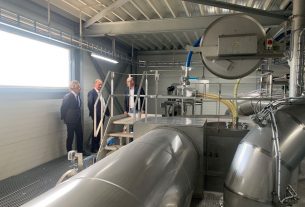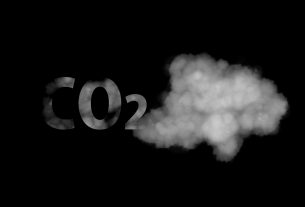Europe – EU Council’s decision to embrace nuclear power and carbon capture in its Net Zero Industry Act sparks concerns among civil society organizations. As EU leaders broaden their approach, critics warn of potential pitfalls that could divert crucial climate funds and impede the swift phase-out of fossil fuels.
In the ever-evolving landscape of climate action, the EU finds itself at the center of a heated debate surrounding the inclusion of nuclear power and carbon capture in its Net Zero Industry Act (NZIA). While the move aims to diversify strategic technologies, civil society organizations are raising red flags, emphasizing the need for a focus on readily available solutions to meet the 2030 climate targets.
In a pivotal EU Council vote, industry ministers align with the European Parliament to expand the NZIA’s scope, welcoming nuclear power and broadening carbon capture and storage (CCS) as strategic net-zero technologies. The EU Commission’s initial list, excluding nuclear, has ignited a clash of perspectives on the path to a sustainable future.
Urgency of decarbonization
Critics argue that the inclusion of nuclear power and CCS diverges from the pragmatic approach needed to swiftly reduce emissions. The latest Intergovernmental Panel on Climate Change (IPCC) report designates nuclear power and CCS as the least effective mitigation options. To achieve the 2030 climate targets, the EU must prioritize affordable and deployable technologies such as renewables, heat pumps, and electrolysers.
Examining the facts, nuclear power faces criticism on multiple fronts. Prolonged delays in construction, cost overruns leading to industry nationalization, and dependence on foreign entities like Rosatom raise serious concerns. Furthermore, the environmental impact, from uranium mining to radioactive waste, contradicts the vision of a decentralized energy system touted by proponents of renewables.
CCS – risky bet
While CCS holds potential for targeted emissions in specific sectors, skepticism arises due to its high cost and unproven scalability. Governments opting for CCS-centric decarbonization plans risk falling behind in competitiveness, according to an Oxford University study. Moreover, the technology’s potential use as a delaying tactic for fossil fuel projects raises alarms among environmental advocates.
Inter-institutional negotiations
As the dust settles on the EU Council’s decision, inter-institutional negotiations (trilogues) loom large. The EU Commission, standing alone in opposition to nuclear inclusion, plays a crucial role as the sole legislator. The outcome of these negotiations will shape the future trajectory of the NZIA and define the EU’s commitment to pragmatic and effective climate action.
The EU’s pursuit of a comprehensive Net Zero Industry Act raises critical questions about the balance between innovation and practicality. While advocates argue for a diversified portfolio of technologies, opponents stress the urgency of focusing on proven, affordable solutions. As the trilogues unfold, the EU stands at a crossroads, facing the challenge of harmonizing its climate goals with the need for immediate, impactful action.




